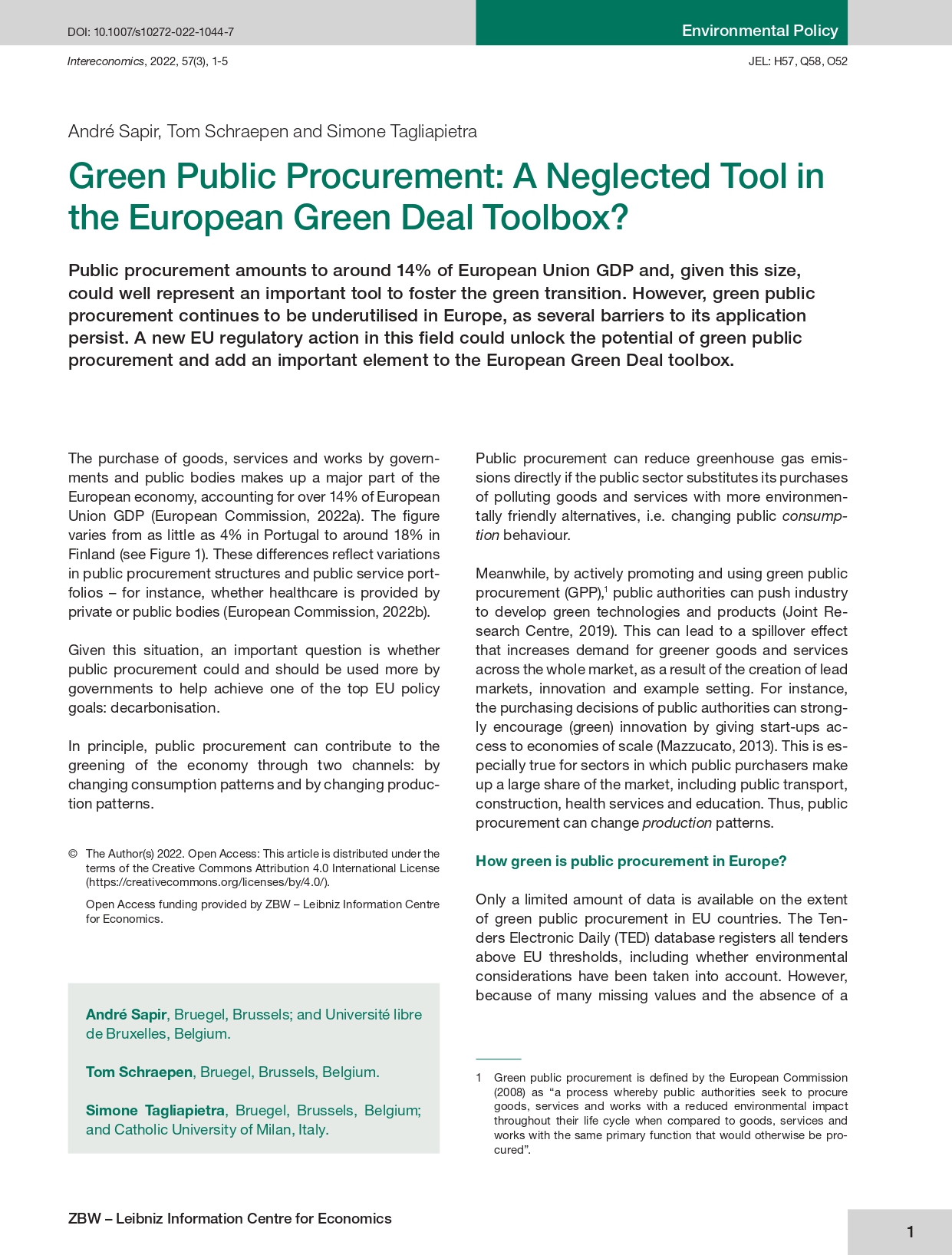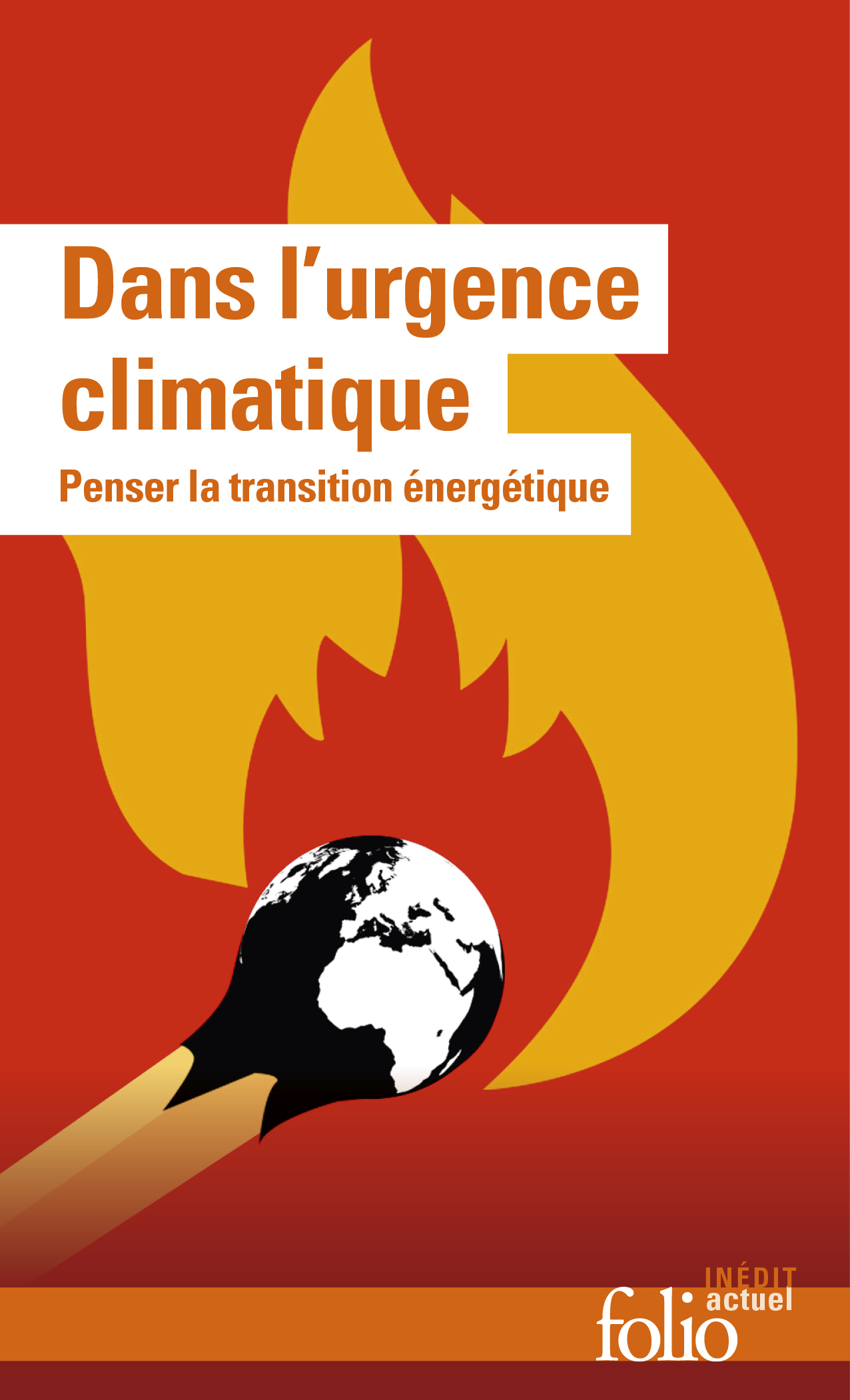Opinion
Coming soon: a massive laboratory for ‘Green New Deals’
Green New Deals’ are not going to turn countries into ‘hermit nations’,but they are not going to turn countries into economic paradises either. They simply are tools to achieve something more basic: ensure that climate change does not compromise our life in this planet. And this already looks like a good reason for them to be well worth our time.
This article was also published in Medium
Many on the American right view the ‘Green New Deal’ as an unrealistic, Soviet-style, fantasy destined to turn the country into a ‘hermit nation’, but such a project is now about to be tested on half-billion people across the Atlantic.
Ursula von der Leyen, the incoming chief of the European Union’s powerful administrative branch, adopted the ‘European Green Deal’ as her top political priority.
For the first time ever, a large economy will cut a path to climate neutrality by 2050 – a milestone that scientists consider to be the only sensible way to protect the world from the more dramatic impacts of climate change.
Should this experiment succeed, the ‘European Green Deal’ might become a seminal blueprint for other countries around the world; a tangible example that pursuing climate neutrality is not only technically feasible but also economically and politically viable.
The recipe of success for the ‘European Green Deal’ is as simple as it is breath-taking: to intelligently promote deep decarbonisation by accompanying the economic and industrial transformation this necessarily implies, and by ensuring the social inclusiveness of the overall process.
That is, climate policy alone is not sufficient to sensibly pursue climate neutrality. For instance, a strategy only based on raising the price of carbon – either through a visible carbon tax or through an imperceptible emissions trading system – would not bring us anywhere, as people will fiercely reject it. Just ask the ‘Gilets jaunes’.
Only a much broader policy – also encompassing its economic, fiscal, industrial, labour, innovation and social policy aspects can sensibly face such a challenge. This is hardly surprising if considering that shifting our economies from fossil fuels to deep decarbonisation represents one of the major socio-economic revolutions ever seen in history.
To be clear, this is not going to be an easy ride. As in any revolution, there will be winners but also losers. What a ‘European Green Deal’ should do is to facilitate this process by providing a clear sense of direction to both investors and citizens, as well as putting in place mechanisms to ensure that the most vulnerable segments of the society are supported and not left behind.
But to be politically sustainable over time, the ‘European Green Deal’ foremost needs to be honest about its nature.
Recalling Franklin D. Roosevelt, the US discourse often presents the ‘Green New Deal’ as a radical silver-bullet for boosting economic growth and for creating millions of well-paid jobs. But ‘Green New Deals’ needn’t redefine our economics and further polarise our politics. All they need to do is to shift our economies from fossil fuels to zero-carbon in a way that’s socially and politically viable.
That is, ‘Green New Deals’ should not be promoted as powerful economic bazookas, but rather as efficient reallocation mechanisms, fostering investment shifts and labour substitution in key economic sectors, while accompanying the most vulnerable segments of the society throughout the process. In practise, this means promoting a shift from fossil fuels to renewables, turning diesel cars-related jobs into electric cars-related ones, compensating low-income households for higher gasoline prices, or re-training coal miners to get new jobs.
‘Green New Deals’ are not going to turn countries into ‘hermit nations’, but they are not going to turn countries into economic paradises either.
They simply are tools to achieve something more basic: ensure that climate change does not compromise our life in this planet. And this already looks like a good reason for them to be well worth our time.
This is how President von der Leyen should present the ‘European Green Deal’ to make it a successful and sustainable experiment. In these terms, nobody would see it as a fantasy destined to turn Europe into a ‘hermit continent’, but rather as a good – and necessary – operation to ensure the well-being of current and future generations.
Republishing and referencing
Bruegel considers itself a public good and takes no institutional standpoint.
Due to copyright agreements we ask that you kindly email request to republish opinions that have appeared in print to [email protected].










